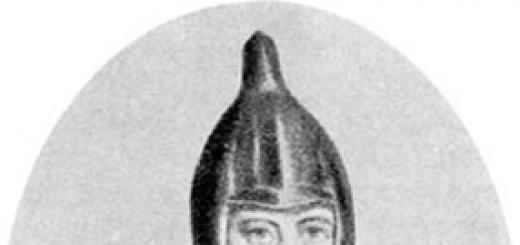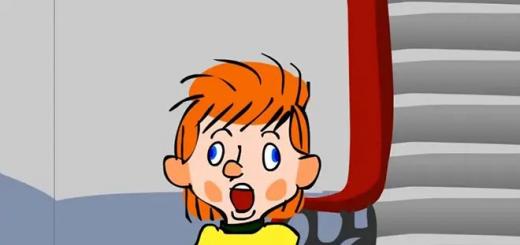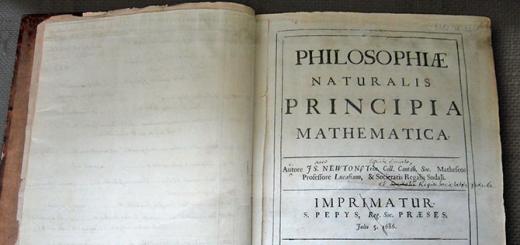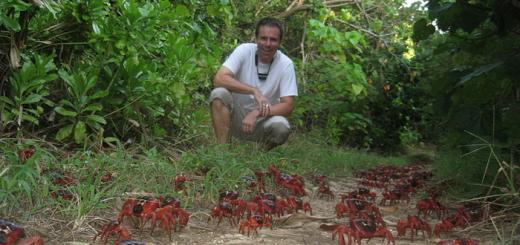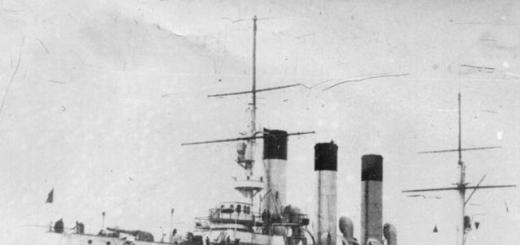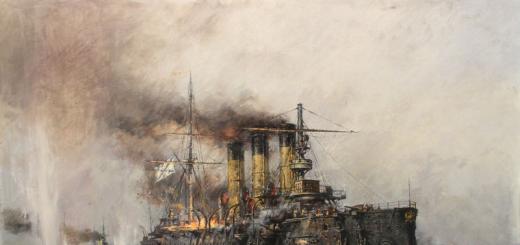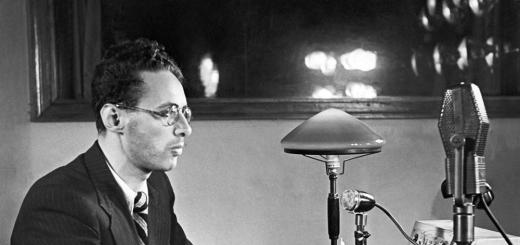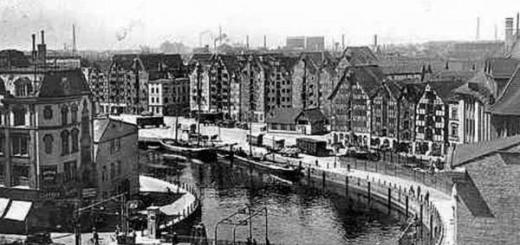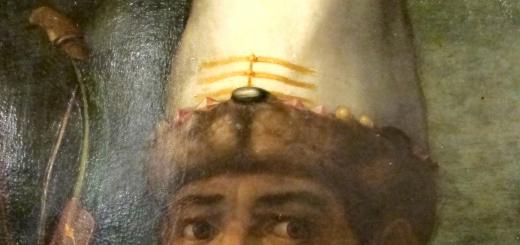Anna Andreevna Akhmatova was born on June 23 (11), 1889 (real name Gorenko). Akhmatova's ancestors on her mother's side, according to family tradition, ascended to the Tatar Khan Akhmat (hence the pseudonym). Father is a mechanical engineer in the Navy, occasionally engaged in journalism. As a one-year-old child, Anna was transferred to Tsarskoye Selo, where she lived until the age of sixteen. Her first memories are from Tsarskoye Selo: “The green, damp splendor of the parks, the pasture where my nanny took me, the hippodrome, where small motley horses galloped, the old station ...”
|
Anna Akhmatova |
Anna spent every summer near Sevastopol, on the shores of Streletskaya Bay. She learned to read according to the alphabet of Leo Tolstoy. At the age of five, listening to how the teacher worked with older children, she also began to speak French. Akhmatova wrote her first poem when she was eleven years old. Anna studied at the Tsarskoye Selo Women's Gymnasium, at first badly, then much better, but always reluctantly. In Tsarskoe Selo in 1903 she met N. S. Gumilyov and became a constant recipient of his poems. In 1905, after the divorce of her parents, Anna moved with her mother to Evpatoria. The last class was held at the Fundukleevskaya gymnasium in Kyiv, which she graduated in 1907. In 1908-10 she studied at the law department of the Kyiv Higher Women's Courses. Then she attended the women's historical and literary courses of N.P. Raev in St. Petersburg (early 1910s).
In the spring of 1910, after several refusals, Anna Gorenko agreed to become the wife of N.S. Gumilyov. From 1910 to 1916 she lived with him in Tsarskoye Selo, for the summer she went to the Gumilyov estate Slepnevo in the Tver province. On her honeymoon, she made her first trip abroad, to Paris. I visited there for the second time in the spring of 1911. In the spring of 1912, the Gumilyovs traveled around Italy; in September their son Leo (L. N. Gumilyov) was born. In 1918, officially divorcing Gumilyov (in fact, the marriage broke up back in 1914), Akhmatova married the Assyriologist and poet V. K. Shileiko.
First publications. First collections. Success.Writing poetry from the age of 11, and publishing from the age of 18 (the first publication in the Sirius magazine published by Gumilyov in Paris, 1907), Akhmatova first announced her experiments to an authoritative audience (Ivanov, M. A. Kuzmin) in the summer of 1910. Defending spiritual independence from the very beginning of family life, she makes an attempt to publish without the help of Gumilyov. In the fall of 1910, Akhmatova sent her poems to V. Ya. Bryusov in Russkaya Mysl, asking if she should study poetry. Having received a negative answer, he submits poems to the magazines Gaudeamus, Vseobshchei Zhurnal, Apollo, which, unlike Bryusov, publish them. Upon Gumilyov's return from an African trip (March 1911), Akhmatova reads to him everything she had composed during the winter and for the first time received full approval of her literary experiments. Since that time, she has become a professional writer. Released a year later, her collection "Evening" found a very quick success. In the same year, 1912, members of the newly formed Poets Workshop, of which Akhmatova was elected secretary, announced the emergence of a poetic school of acmeism. Akhmatova's life proceeds under the sign of growing metropolitan fame: she speaks to a crowded audience at the Higher Women's (Bestuzhev) Courses, artists paint her portraits, poets turn to her with poetic messages (including A.A. Blok, which gave rise to the legend of their secret romance ). There are new, more or less long-term intimate attachments of Akhmatova to the poet and critic N. V. Nedobrovo, to the composer A. S. Lurie, and others.
In 1914, the second collection "Rosary" was published, which was reprinted about 10 times. This collection brought her all-Russian fame, gave rise to numerous imitations, affirming the concept of “Akhmatov’s line” in the literary mind. In the summer of 1914, Akhmatova wrote the poem "By the Sea", which goes back to childhood experiences during summer trips to Chersonese near Sevastopol.
"White Flock"With the outbreak of World War I, Akhmatova severely limited her public life. At this time, she suffers from tuberculosis. An in-depth reading of the classics (A. S. Pushkin, E. A. Baratynsky, Rasin, and others) affects her poetic manner: the sharply paradoxical style of cursory psychological sketches gives way to neoclassical solemn intonations. Insightful criticism guesses in her new collection The White Flock (1917) the growing "sense of personal life as a national, historical life" (B. M. Eikhenbaum). Inspiring in her early poems the atmosphere of "mystery", the aura of autobiographical context, Akhmatova introduces free "self-expression" as a stylistic principle into high poetry. The apparent fragmentation, dissonance, spontaneity of lyrical experience is more and more clearly subject to a strong integrating principle, which gave V. V. Mayakovsky reason to remark: “Akhmatova’s poems are monolithic and will withstand the pressure of any voice without cracking.”
Post-revolutionary yearsThe first post-revolutionary years in Akhmatova's life were marked by deprivation and complete estrangement from the literary environment. Only in the autumn of 1921, after the death of Blok and the execution of Gumilyov, did she part with Shileiko and return to active work: she participates in literary evenings, in the work of writers' organizations, and publishes in periodicals. In the same year, two of her collections "Plantain" and "Anno Domini. MCMXXI". In 1922, for a decade and a half, Akhmatova joined her fate with the art critic N. N. Punin.
From 1923 to 1935, Akhmatova almost did not write poetry. Since 1924, they stopped printing it - persecution in criticism begins, unwittingly provoked by K. Chukovsky's article “Two Russias. Akhmatova and Mayakovsky. During the years of forced silence, Akhmatova was engaged in translations, studied the works and life of A.S. Pushkin, the architecture of St. Petersburg. She owns outstanding research in the field of Pushkin studies (“Pushkin and the Neva Seaside”, “The Death of Pushkin”, etc.). For many years, Pushkin becomes for Akhmatova salvation and refuge from the horrors of history, the personification of the moral norm, harmony.
With the mid-1920s, Akhmatova associated a fundamental change in her "handwriting" and "voice".
"Requiem"In 1935, Akhmatova's son L. Gumilyov and her husband N. Punin were arrested. Akhmatova rushed to Moscow, to Mikhail Bulgakov, who was tacitly considered in literary circles to be a "specialist" on Stalin. Bulgakov read Akhmatova's letter to the Kremlin and, on reflection, gave advice: don't use a typewriter. Akhmatova rewrote the text by hand, having little faith in success. But it worked! Without any explanation, the two arrested were released within a week.
However, in 1937, the NKVD was preparing materials to accuse the poetess herself of counter-revolutionary activities. In 1938, Lev Gumilyov was again arrested. The experiences of these painful years clothed in verses made up the Requiem cycle, which for two decades Akhmatova did not even dare to fix on paper. The facts of a personal biography in the "Requiem" acquired the grandeur of biblical scenes, Russia of the 1930s was likened to Dante's hell, Christ was mentioned among the victims of terror, herself, "three hundredth with a transmission", Akhmatova called "the archer's wife."
In 1939, the name of A. Akhmatova was unexpectedly returned to literature. At a reception in honor of the awarding of writers, Comrade Stalin asked about Akhmatova, whose poems his daughter Svetlana loved: “Where is Akhmatova? Why doesn't he write anything? Akhmatova was immediately admitted to the Writers' Union, publishing houses became interested in her. In 1940 (after a 17-year break), her collection “From Six Books” was published, which Akhmatova herself called, not without irony, “a gift from dad to daughter.”
War. EvacuationThe war found Akhmatova in Leningrad. Together with her neighbors, she dug cracks in the Sheremetyevsky Garden, was on duty at the gates of the Fountain House, painted beams in the attic of the palace with refractory lime, and saw the “burial” of statues in the Summer Garden. The impressions of the first days of the war and the blockade were reflected in the poems "The first long-range in Leningrad", "The birds of death are at their zenith ...".
At the end of September 1941, by order of Stalin, Akhmatova was evacuated outside the blockade ring. Turning in fateful days to the people tortured by him with the words "Brothers and sisters ...", the leader understood that patriotism, deep spirituality and courage of Akhmatova would be useful to Russia in the war against fascism. Akhmatova's poem "Courage" was published in Pravda and then reprinted many times, becoming a symbol of resistance and fearlessness.
A. Akhmatova spends two and a half years in Tashkent. He writes many poems, works on "A Poem Without a Hero" (1940-65). In 1943, Anna Andreevna was awarded the medal "For the Defense of Leningrad". And after the war, in the spring of 1946, she was awarded an invitation to a gala evening in honor of the anniversary of the great Victory. When the disgraced poetess suddenly regally stepped onto the stage of the columned hall of the House of the Unions as the former queen of poetry, the hall stood up, arranging an ovation that lasted 15 (!) minutes. So it was customary to honor only one person in the country ...
Decree of the Central Committee of the All-Union Communist Party of Bolsheviks of 1946Soon, Akhmatova incurs the wrath of Stalin, who learned about the visit to her by the English writer and philosopher I. Berlin, and even in the company of W. Churchill's grandson. The Kremlin authorities make Akhmatova, along with M. M. Zoshchenko, the main object of party criticism. The decree of the Central Committee of the All-Union Communist Party of Bolsheviks directed against them “On the magazines Zvezda and Leningrad” (1946) tightened the ideological dictate and control over the Soviet intelligentsia, misled by the liberating spirit of national unity during the war.
September 1946, Akhmatova herself called the fourth "clinical famine": expelled from the Writers' Union, she was deprived of ration cards. A listening device was installed in her room, and searches were repeatedly conducted. The decree was included in the school curriculum, and several generations of Soviet people, while still at school, learned that Akhmatova was “neither a nun, nor a harlot.” In 1949, Lev Gumilyov, who went through the war and reached Berlin, was again arrested. To rescue her son from Stalin's torture chamber, Akhmatova grimaced: she wrote a cycle of poems praising Stalin, Glory to the World (1950). She expressed her true attitude towards the dictator in a poem:
Stalin did not accept Akhmatova's sacrifice: Lev Gumilyov was released only in 1956, and the ex-husband of the poetess N. Punin, also arrested a second time, died in Stalin's camps.
Last years. "Running Time"The last years of Akhmatova's life, after Stalin's death and her son's return from prison, were relatively prosperous. Akhmatova, who never had her own shelter and wrote all her poems “on the edge of the windowsill,” finally got a place to live. There was an opportunity to publish a large collection "The Run of Time", which included Akhmatova's poems for half a century. Akhmatova is nominated for the Nobel Prize.
In 1964, she received the prestigious Etna-Taormina award in Italy, and in 1965 in England, an honorary doctorate from Oxford University.
For twenty-two years, Akhmatova worked on the final work - "A Poem without a Hero." The poem led to 1913 - to the origins of Russian and world tragedy, drew a line under the catastrophes of the twentieth century. In the poem, Akhmatova reflects on the retribution that has overtaken Russia and looks for the cause in the fateful year 1914, in that mystical sensuality, the tavern frenzy into which the artistic intelligentsia, people of its circle, plunged. The magic of coincidences, "roll calls", dates has always been felt by Akhmatova as the basis of poetry, as a mystery that lies at its source. According to one of these significant coincidences, Akhmatova died on the anniversary of Stalin's death - March 5, 1966. The death of Akhmatova in Domodedovo near Moscow, her funeral in Leningrad and her funeral in the village of Komarovo caused numerous responses in Russia and abroad.
The very fact of Akhmatova's existence was a defining moment in the spiritual life of many people, and her death meant the breaking of the last living connection with a bygone era.
Anna Andreevna Akhmatova (Gorenko)
(1889 - 1966)
One of the most talented poets of the Silver Age, Anna Akhmatova lived a long life full of both bright moments and tragic events. She was married three times, but she did not experience happiness in any marriage. She witnessed two world wars, during each of which she experienced an unprecedented creative upsurge. She had a difficult relationship with her son, who became a political repressant, and until the end of her life, the poetess believed that she preferred creativity to love for him ...
Anna Andreevna Gorenko (this is the real name of the poetess) was born on June 11 (June 23, old style), 1889 in Odessa. Her father, Andrei Antonovich Gorenko, was a retired captain of the second rank, after completing his naval service, he received the rank of collegiate assessor. The mother of the poetess, Inna Stogova, was an intelligent, well-read woman who made friends with representatives of the creative elite of Odessa. However, Akhmatova will not have childhood memories of the “pearl by the sea” - when she was one year old, the Gorenko family moved to Tsarskoe Selo near St. Petersburg.Here Akhmatova became a student of the Mariinsky Gymnasium, but spent every summer near Sevastopol. “My first impressions are Tsarskoye Selo,” she wrote in a later autobiographical note, “the green, damp splendor of the parks, the pasture where the nanny took me, the hippodrome, where small motley horses galloped, the old station and something else that later became part of the Tsarskoye Selo Ode "".
From childhood, Anna was taught French and secular etiquette, which was familiar to any girl from an intelligent family. Anna received her education at the Tsarskoye Selo Women's Gymnasium, where she met her first husband Nikolai Gumilyov and wrote her first poems. Having met Anna at one of the gala evenings at the gymnasium, Gumilyov was fascinated by her and since then the fragile dark-haired girl has become the constant muse of his work.
Akhmatova composed her first verse at the age of 11 and after that she began to actively improve herself in the art of versification. The poet's father considered this occupation frivolous, therefore he forbade her to sign her creations with the name Gorenko. Then Anna took the maiden name of her great-grandmother - Akhmatova. However, very soon her father completely ceased to influence her work - her parents divorced, and Anna and her mother moved first to Evpatoria, then to Kyiv, where from 1908 to 1910 the poetess studied at the Kyiv Women's Gymnasium. In 1910 Akhmatova married her longtime admirer Gumilyov. Nikolai Stepanovich, who was already a fairly well-known personality in poetic circles, contributed to the publication of his wife's poetic developments. The style of Akhmatova's early poetic experiments was significantly influenced by her acquaintance with the prose of K. Hamsun, with the poetry of V. Ya. Bryusov and A. A. Blok. Akhmatova spent her honeymoon in Paris, then moved to St. Petersburg and from 1910 to 1916 lived mainly in Tsarskoe Selo. She studied at the Higher Historical and Literary Courses of N. P. Raeva.
Akhmatova's first poems began to be published in various publications since 1911, and in 1912 her first full-fledged poetry collection, Evening, was published. In 1912, Anna gave birth to a son, Leo, and in 1914 she became famous - the collection "Rosary" received good reviews from critics, Akhmatova began to be considered a fashionable poetess. Gumilyov's patronage by that time ceases to be necessary, and discord sets in in the relationship of the spouses. In 1918, Akhmatova divorced Gumilyov and married the poet and scientist Vladimir Shileiko. However, this marriage was also short-lived - in 1922 the poetess divorced him too, in order to marry six months later with art critic Nikolai Punin. Paradox: subsequently, Punin will be arrested almost at the same time as Akhmatova's son, Lev, but Punin will be released, and Lev will go through the stage. Akhmatova's first husband, Nikolai Gumilyov, would already be dead by that time: he would be shot in August 1921.
Her lyrics turned out to be close not only to "high school students in love," as Akhmatova ironically remarked. Among her enthusiastic admirers were poets who only entered the literature - M. I. Tsvetaeva, B. L. Pasternak. A. A. Blok and V. Ya. Bryusov treated Akhmatova more reservedly, but nevertheless they approved. During these years, Akhmatova became a favorite model for many artists and the addressee of numerous poetic dedications. Her image is gradually turning into an integral symbol of the Petersburg poetry of the era of acmeism. During the First World War, Akhmatova did not join her voice with the voices of poets who shared the official patriotic pathos, but she responded with pain to wartime tragedies ("July 1914", "Prayer", etc.). The White Pack, published in September 1917, was not as successful as the previous books. But the new intonations of mournful solemnity, prayerfulness, and a super personal beginning destroyed the habitual stereotype of Akhmatov's poetry, which had developed among the reader of her early poems. These changes were caught by O. E. Mandelstam, noting: "The voice of renunciation is growing stronger and stronger in Akhmatova's poems, and at present her poetry is approaching becoming one of the symbols of the greatness of Russia." After the October Revolution, Akhmatova did not leave her homeland, remaining in "her deaf and sinful land." In the poems of these years (collections "Plantain" and "Anno Domini MCMXXI", both - 1921), sorrow for the fate of their native country merges with the theme of detachment from the vanity of the world, the motives of "great earthly love" are colored by the mood of the mystical expectation of the "groom", and understanding creativity as divine grace spiritualizes reflections on the poetic word and the poet's vocation and translates them into an "eternal" plan.
The last published collection of Anna Andreevna dates back to 1924. After that, her poetry falls into the field of view of the NKVD as "provocative and anti-communist." The poetess is very upset by the inability to publish, she writes a lot "on the table", the motives of her poetry change from romantic to social. After the arrest of her husband and son, Akhmatov began work on the poem "Requiem". The "fuel" for the creative frenzy was the soul-exhausting experiences for the native people. The poetess was well aware that under the current government this creation would never see the light of day, and in order to somehow remind readers of herself, Akhmatova wrote a number of “sterile” poems from the point of view of ideology, which, together with censored old poems, make up the collection “Out of Six books, published in 1940.
Akhmatova spent the entire Second World War in the rear, in Tashkent. Almost immediately after the fall of Berlin, the poetess returned to Moscow. However, there she was no longer considered a "fashionable" poetess: in 1946, her work was criticized at a meeting of the Writers' Union, and soon Akhmatova was expelled from the SSP. Soon another blow falls on Anna Andreevna: the second arrest of Lev Gumilyov. For the second time, the son of the poetess was sentenced to ten years in the camps. All this time, Akhmatova tried to pull him out, scribbled requests to the Politburo, but no one listened to them. Lev Gumilyov himself, not knowing anything about the efforts of his mother, decided that she had not made enough efforts to help him, so after his release he moved away from her.
In 1951, Akhmatova was reinstated in the Union of Soviet Writers and she is gradually returning to active creative work. In 1964, she was awarded the prestigious Italian literary prize "Etna-Torina" and she is allowed to receive it, since the times of total repression have passed, and Akhmatova has ceased to be considered an anti-communist poetess. In 1958, the collection "Poems" was published, in 1965 - "The Run of Time". Then, in 1965, a year before her death, Akhmatova received her doctorate from Oxford University.
The pinnacle of Akhmatova's work is the great lyric-epic "Poem Without a Hero" (1940-62). The tragic plot of the young poet's suicide echoes the theme of the impending collapse of the old world; the poem is distinguished by the richness of figurative content, the refinement of the word, rhythm, and sound.
Speaking of Anna Andreevna, it is impossible not to mention the memories of people who knew her. In these stories you feel the whole inner world of Akhmatova. We invite you to plunge into the world of memories of K.I. Chukovsky:
“I knew Anna Andreevna Akhmatova since 1912. Thin, slender, like a timid fifteen-year-old girl, she never left her husband, the young poet N. S. Gumilyov, who then, at the first meeting, called her his student.
That was the time of her first poems and extraordinary, unexpectedly noisy triumphs. Two or three years passed, and in her eyes, in her posture, and in her treatment of people, one main feature of her personality was outlined: majesty. Not arrogance, not arrogance, not arrogance, but precisely "royal" majesty, a monumentally important step, an indestructible sense of respect for oneself, for one's lofty literary mission.
Every year she became more majestic. She did not care about it at all, it came out of her by itself. In all the half century that we have known each other, I do not remember a single pleading, ingratiating, petty or pitiful smile on her face. When I looked at her, I always remembered Nekrasov's:
There are women in Russian villages
With calm gravity of faces,
With beautiful strength in movements,
With a gait, with the eyes of queens ...
She was completely devoid of any sense of ownership. She did not love and did not keep things, parted with them surprisingly easily. She was a homeless nomad and did not value property to such an extent that she willingly freed herself from it as from a burden. Her close friends knew that it was worth giving her some, say, a rare engraving or a brooch, and in a day or two she would distribute these gifts to others. Even in her youth, during the years of her brief "prosperity", she lived without bulky wardrobes and chests of drawers, often even without a desk.
There was no comfort around her, and I do not remember a period in her life when the atmosphere around her could be called cozy.
The very words "ambiance", "coziness", "comfort" were organically alien to her - both in life and in the poetry she created. Both in life and in poetry, Akhmatova was most often homeless ... It was habitual poverty, from which she did not even try to get rid of.
Even books, with the exception of the most beloved ones, she gave to others after reading. Only Pushkin, the Bible, Dante, Shakespeare, Dostoevsky were her constant interlocutors. And she often took these books - one or the other - on the road. The rest of the books, having visited her, disappeared ...
She was one of the most well-read poets of her era. She hated to waste time reading fashionable sensational things that magazine and newspaper critics shouted about. But she read and re-read each of her favorite books several times, returning to it again and again.
When you leaf through Akhmatova's book, all of a sudden, among the mournful pages about separation, about orphanhood, about homelessness, you come across such verses that convince us that in the life and poetry of this "homeless wanderer" there was a House that served her at all times as her faithful and saving refuge.
This House is the motherland, the native Russian land. From a young age, she gave all her brightest feelings to this House, which were fully revealed when it was subjected to an inhuman attack by the Nazis. Her formidable lines began to appear in the press, deeply in tune with the courage of the people and the anger of the people.
Anna Akhmatova is a master of historical painting. The definition is strange, extremely far from previous assessments of her skill. It is unlikely that this definition was met at least once in books, articles and reviews dedicated to her - in all the vast literature about her.
Her images never lived their own life, but always served to reveal the poet's lyrical experiences, his joys, sorrows and anxieties. She expressed all these feelings laconicly and reservedly. Some barely perceptible microscopic image was saturated in her with such great emotions that he alone replaced dozens of pathetic lines.
Whatever she wrote about in recent years, her poems always felt a stubborn thought about the historical fate of the country with which she is connected with all the roots of her being.
When Anna Andreevna was Gumilyov's wife, they were both fond of Nekrasov, whom they had loved since childhood. They applied Nekrasov's poems to all occasions in their lives. It became their favorite literary game. Once, when Gumilyov was sitting at the table in the morning and diligently working early in the morning, Anna Andreevna was still lying in bed. He reproachfully told her in the words of Nekrasov:
White day took over the capital,
Sleep sweetly young wife
Only a hard-working husband is pale-faced
He doesn't lie down, he can't sleep.
Anna Andreevna answered him with the same quote:
On a red pillow
First degree Anna lies.
There were a few people with whom she had a particularly "good laugh," as she liked to put it. These were Osip Mandelstam and Mikhail Leonidovich Lozinsky - her comrades, the closest ....
In the character of Akhmatova there were many diverse qualities that did not fit into one or another simplified scheme. Her rich, complex personality abounded in traits that are rarely combined in one person.
... "the mournful and modest grandeur" of Akhmatova was her inalienable property. She remained majestic always and everywhere, in all cases of life - both in secular conversation, and in intimate conversations with friends, and under the blows of a ferocious fate - "even now in bronze, on a pedestal, on a medal"!
Before Akhmatova, history knew many women poets, but only she managed to become the female voice of her time, a woman poet of eternal, universal significance.
She, like no one else, managed to reveal the most cherished depths of the female inner world, experiences, states and moods. To achieve amazing psychological persuasiveness, she uses a capacious and concise artistic device of a speaking detail, which becomes a “sign of trouble” for the reader. Akhmatova finds such “signs” in the everyday world, unexpected for traditional poetry. These can be details of clothing (hat, veil, glove, ring, etc.), furniture (table, bed, etc.), furs, candles, seasons, natural phenomena (sky, sea, sand, rain, flood, etc.). etc.), smells and sounds of the surrounding, recognizable world. Akhmatova approved the "civil rights" of "non-poetic" everyday realities in the high poetry of feelings. The use of such details does not reduce, "ground" or trivialize traditionally high themes. On the contrary, the depth of feelings and thoughts of the lyrical heroine receives additional artistic persuasiveness and almost visible authenticity. Many laconic details of Akhmatova the artist not only concentrated a whole gamut of experiences, but became universally recognized formulas, aphorisms expressing the state of the human soul. This is the "glove on the right hand" worn on the left hand, and the proverb "How many requests does the beloved always have! // A loved one does not have requests", and much more. Reflecting on the craft of the poet, Akhmatova introduced another ingenious formula into poetic culture.
Akhmatova pays tribute to the high universal role of love, its ability to inspire those who love. When people fall under the power of this feeling, they are pleased with the smallest everyday details seen by loving eyes: lindens, flower beds, dark alleys, streets, etc. black sky, // And in the depths of the alley, the arch of the crypt", - they also become contrasting signs of love in Akhmatov's context. Love sharpens the sense of touch:
After all, the stars were bigger.
After all, the herbs smelled differently,
Autumn herbs.
(Love conquers deceitfully...)
And yet, Akhmatova's love poetry is, first of all, the lyrics of a break, the end of a relationship, or the loss of feelings. Almost always, her poem about love is a story about the last meeting (“The Song of the Last Meeting”) or a farewell explanation, a kind of lyrical fifth act of the drama. as, for example, in poems about Dido and Cleopatra, But her states of parting are surprisingly diverse and comprehensive: this is a cooled feeling (for her, for him, for both), and misunderstanding, and temptation, and mistake, and the tragic love of the poet In a word, all the psychological facets of separation were embodied in Akhmatov's lyrics.
It is no coincidence that Mandelstam traced the origins of her work not to poetry, but to the psychological prose of the 19th century. “Akhmatova brought to Russian lyrics all the enormous complexity and psychological richness of the Russian novel of the nineteenth century. "A nest of nobles", all of Dostoevsky and partly even Leskov ... She developed her poetic form, sharp and military, with an eye on psychotic prose.
It was Akhmatova who managed to give love the "right of a woman's voice" ("I taught women to speak," she grins in the epigram "Could Biche ...") and embody women's ideas about the ideal of masculinity in lyrics, to present, according to contemporaries, a rich palette "male charms" - objects and addressees of female feelings.
Anna Andreevna Akhmatova died on March 5, 1966 in Domodedovo near Moscow.
The main achievements of Akhmatova
1912 - a collection of poems "Evening"
1914-1923 - a series of poetry collections "Rosary", consisting of 9 editions.
1917 - collection "White flock".
1922 - collection "Anno Domini MCMXXI".
1935-1940 - writing the poem "Requiem"; first publication - 1963, Tel Aviv.
1940 - collection "From six books".
1961 - collection of selected poems, 1909-1960.
1965 - the last lifetime collection, "The Run of Time".
The main dates of the biography of Akhmatova
1900-1905 - studying at the Tsarskoye Selo Women's Gymnasium.
1906 - moving to Kyiv.
1910 - marriage to N. Gumilyov.
March 1912 - the release of the first collection "Evening".
1914 - the release of the second collection of "Rosary".
1918 - divorce from N. Gumilyov, marriage to V. Shileiko.
1922 - marriage to N. Punin.
1935 - moving to Moscow in connection with the arrest of his son.
1940 - publication of the collection "From Six Books".
May 1943 - publication of a collection of poems in Tashkent.
Summer 1945 - moving to Leningrad.
November 1949 - the second arrest of Lev Gumilyov.
May 1951 - restoration in the Writers' Union.
December 1964 - receiving the Etna Torina Prize
Interesting facts from the life of Akhmatova
Throughout her conscious life, Akhmatova kept a diary, excerpts from which were published in 1973. On the eve of her death, going to bed, the poetess wrote that she was sorry that her Bible was not here, in the cardiological sanatorium. Apparently, Anna Andreevna had a premonition that the thread of her earthly life was about to break.
Akhmatova's "Poem Without a Hero" contains the lines: "clear voice: I'm ready for death." These words sounded in life too: they were spoken by Akhmatova's friend and colleague in the Silver Age, Osip Mandelstam, when they, along with the poetess, walked along Tverskoy Boulevard.
After the arrest of Lev Gumilyov, Akhmatova, along with hundreds of other mothers, went to the infamous Kresty prison. Once, one of the women, tormented by expectation, saw the poetess and recognized her and asked, “Can you describe THAT?”. Akhmatova answered in the affirmative, and it was after this incident that she began working on Requiem.
Before her death, Akhmatova nevertheless became close to her son Leo, who for many years harbored an undeserved grudge against her. After the death of the poetess, Lev Nikolayevich took part in the construction of the monument together with his students (Lev Gumilyov was a doctor of Leningrad University). There was not enough material, and the gray-haired doctor, along with the students, wandered the streets in search of stones.
Literature:
Vilenkin. V. "In the hundred and first mirror." M. 1987.
Zhimursky. V. "The work of Anna Akhmatova". L. 1973.
Malyukov. L.N. "A. Akhmatova: Epoch, Personality, Creativity". ed. "Tagarong truth". 1996.
Ministry of Education of the RSFSR. Vladimir State Pedagogical Institute. P.I. Lebedev - Polyansky. "Ways and forms of analysis of a work of art". Vladimir. 1991.
Pavlovsky. A.I. "Anna Akhmatova, life and work". Moscow, "Enlightenment" 1991.
Textbook for general educational institutions "Russian Literature of the XX century" for grade 11, edited by V. V. Agenosov, part 1, M: "Drofa", 1997.
Ekhenbaum. B. "Anna Akhmatova. Analysis experience." L. 1960.
Application






One of the most talented poets of the Silver Age, Anna Akhmatova lived a long life full of both bright moments and tragic events. She was married three times, but she did not experience happiness in any marriage. She witnessed two world wars, during each of which she experienced an unprecedented creative upsurge. She had a difficult relationship with her son, who became a political repressant, and until the end of her life, the poetess believed that she preferred creativity to love for him ...
Biography
Anna Andreeva Gorenko (this is the real name of the poetess) was born on June 11 (June 23, old style), 1889 in Odessa. Her father, Andrei Antonovich Gorenko, was a retired captain of the second rank, after completing his naval service, he received the rank of collegiate assessor. The mother of the poetess, Inna Stogova, was an intelligent, well-read woman who made friends with representatives of the creative elite of Odessa. However, Akhmatova will not have childhood memories of the “pearl by the sea” - when she was one year old, the Gorenko family moved to Tsarskoe Selo near St. Petersburg.
From childhood, Anna was taught French and secular etiquette, which was familiar to any girl from an intelligent family. Anna received her education at the Tsarskoye Selo Women's Gymnasium, where she met her first husband Nikolai Gumilyov and wrote her first poems. Having met Anna at one of the gala evenings at the gymnasium, Gumilyov was fascinated by her and since then the fragile dark-haired girl has become the constant muse of his work.
Akhmatova composed her first verse at the age of 11 and after that she began to actively improve herself in the art of versification. The poet's father considered this occupation frivolous, therefore he forbade her to sign her creations with the name Gorenko. Then Anna took the maiden name of her great-grandmother - Akhmatova. However, very soon her father completely ceased to influence her work - her parents divorced, and Anna and her mother moved first to Evpatoria, then to Kyiv, where from 1908 to 1910 the poetess studied at the Kyiv Women's Gymnasium. In 1910 Akhmatova married her longtime admirer Gumilyov. Nikolai Stepanovich, who was already a fairly well-known personality in poetic circles, contributed to the publication of his wife's poetic developments.
Akhmatova's first poems began to be published in various publications since 1911, and in 1912 her first full-fledged poetry collection, Evening, was published. In 1912, Anna gave birth to a son, Leo, and in 1914 she became famous - the collection "Rosary" received good reviews from critics, Akhmatova began to be considered a fashionable poetess. Gumilyov's patronage by that time ceases to be necessary, and discord sets in in the relationship of the spouses. In 1918, Akhmatova divorced Gumilyov and married the poet and scientist Vladimir Shileiko. However, this marriage was also short-lived - in 1922 the poetess divorced him too, in order to marry six months later with art critic Nikolai Punin. Paradox: subsequently, Punin will be arrested almost at the same time as Akhmatova's son, Lev, but Punin will be released, and Lev will go through the stage. Akhmatova's first husband, Nikolai Gumilyov, would already be dead by that time: he would be shot in August 1921.
The last published collection of Anna Andreevna dates back to 1924. After that, her poetry falls into the field of view of the NKVD as "provocative and anti-communist." The poetess is very upset by the inability to publish, she writes a lot "on the table", the motives of her poetry change from romantic to social. After the arrest of her husband and son, Akhmatov began work on the poem "Requiem". The "fuel" for the creative frenzy was the soul-exhausting experiences for the native people. The poetess was well aware that under the current government this creation would never see the light of day, and in order to somehow remind readers of herself, Akhmatova wrote a number of “sterile” poems from the point of view of ideology, which, together with censored old poems, make up the collection “Out of Six books, published in 1940.
Akhmatova spent the entire Second World War in the rear, in Tashkent. Almost immediately after the fall of Berlin, the poetess returned to Moscow. However, there she was no longer considered a "fashionable" poetess: in 1946, her work was criticized at a meeting of the Writers' Union, and soon Akhmatova was expelled from the SSP. Soon another blow falls on Anna Andreevna: the second arrest of Lev Gumilyov. For the second time, the son of the poetess was sentenced to ten years in the camps. All this time, Akhmatova tried to pull him out, scribbled requests to the Politburo, but no one listened to them. Lev Gumilyov himself, not knowing anything about the efforts of his mother, decided that she had not made enough efforts to help him, so after his release he moved away from her.
In 1951, Akhmatova was reinstated in the Union of Soviet Writers and she is gradually returning to active creative work. In 1964, she was awarded the prestigious Italian literary prize "Etna-Torina" and she is allowed to receive it, since the times of total repression have passed, and Akhmatova has ceased to be considered an anti-communist poetess. In 1958, the collection "Poems" was published, in 1965 - "The Run of Time". Then, in 1965, a year before her death, Akhmatova received her doctorate from Oxford University.
The main achievements of Akhmatova
- 1912 - a collection of poems "Evening"
- 1914-1923 - a series of poetry collections "Rosary", consisting of 9 editions.
- 1917 - collection "White flock".
- 1922 - collection "Anno Domini MCMXXI".
- 1935-1940 - writing the poem "Requiem"; first publication - 1963, Tel Aviv.
- 1940 - collection "From six books".
- 1961 - collection of selected poems, 1909-1960.
- 1965 - the last lifetime collection, "The Run of Time".
The main dates of the biography of Akhmatova
- June 11 (23), 1889 - the birth of A.A. Akhmatova.
- 1900-1905 - studying at the Tsarskoye Selo Women's Gymnasium.
- 1906 - moving to Kyiv.
- 1910 - marriage to N. Gumilyov.
- March 1912 - the release of the first collection "Evening".
- September 18, 1913 - the birth of the son of Leo.
- 1914 - the release of the second collection of "Rosary".
- 1918 - divorce from N. Gumilyov, marriage to V. Shileiko.
- 1922 - marriage to N. Punin.
- 1935 - moving to Moscow in connection with the arrest of his son.
- 1940 - publication of the collection "From Six Books".
- October 28, 1941 - evacuation to Tashkent.
- May 1943 - publication of a collection of poems in Tashkent.
- May 15, 1945 - return to Moscow.
- Summer 1945 - moving to Leningrad.
- September 1, 1946 - A.A. Akhmatova from the Union of Writers.
- November 1949 - the second arrest of Lev Gumilyov.
- May 1951 - restoration in the Writers' Union.
- December 1964 - receiving the Etna Torina Prize
- March 5, 1966 - death.
- Throughout her conscious life, Akhmatova kept a diary, excerpts from which were published in 1973. On the eve of her death, going to bed, the poetess wrote that she was sorry that her Bible was not here, in the cardiological sanatorium. Apparently, Anna Andreevna had a premonition that the thread of her earthly life was about to break.
- Akhmatova's "Poem Without a Hero" contains the lines: "clear voice: I'm ready for death." These words sounded in life too: they were spoken by Akhmatova's friend and colleague in the Silver Age, Osip Mandelstam, when they, along with the poetess, walked along Tverskoy Boulevard.
- After the arrest of Lev Gumilyov, Akhmatova, along with hundreds of other mothers, went to the infamous Kresty prison. Once, one of the women, tormented by expectation, saw the poetess and recognized her and asked, “Can you describe THAT?”. Akhmatova answered in the affirmative, and it was after this incident that she began working on Requiem.
- Before her death, Akhmatova nevertheless became close to her son Leo, who for many years harbored an undeserved grudge against her. After the death of the poetess, Lev Nikolayevich took part in the construction of the monument together with his students (Lev Gumilyov was a doctor of Leningrad University). There was not enough material, and the gray-haired doctor, along with the students, wandered the streets in search of stones.
Anna Andreevna Akhmatova (Gorenko) is a talented and world-renowned poetess whose biography tells of the tragic fate of the generation of the last representatives of the nobility of the Russian Empire, supplemented by a drama characteristic of the life of many creative personalities.
Years of life: 1889 - 1966.
Being persecuted for most of her literary life, repeatedly experiencing repression against loved ones, Anna Akhmatova did not stop writing even in the most difficult moments.
The imprint of the tragedy, superimposed on the work of the poetess, gave him a special spiritual strength and anguish.
The best poems of Anna Akhmatova
Many works of the poetess have earned worldwide recognition.

Each was born on a special occasion, became a logical continuation of the events of her life:
- The first collection of poems by the poetess was published in 1912 under the title "Evening", shortly before the birth of her son. It already contained many poems that made Akhmatova's name immortal: "Muse", "Garden", "Grey-eyed King", "Love".
- The second collection was published already in the year 14, before the start of World War I, under the title "Rosary". It came out in a much larger circulation, but would be reprinted more than once. Reviews of critics noted a noticeable creative growth of the poetess. They emphasized the persuasiveness of the poetic language, many successful literary devices, rhythm and the rare style of the poetess (“Alexander Blok”, “In the Evening”, “I learned to live simply, wisely”).
- Three years later - a month before the terrible revolutionary events of 1917, the collection "White Pack" was published. In his lines, written during the years of Russia's participation in World War I, the shades of intimate experiences of the lyrical heroine, which abounded in the poems of previous collections, are already faintly heard. Akhmatova becomes stricter, more patriotic, more tragic, an appeal to the Divine is tangibly manifested (“In Memory of July 19, 1914”, “Your spirit is darkened by arrogance”). The poetic style is noticeably improved. It was the best time of her life, giving complete freedom for creativity.
- The collection "Plantain" came out in one of the most difficult years for the poetess - in 1921, when she learns about the suicide of her brother, about the execution of her ex-husband and father of her child Nikolai Gumilyov, about the death of a friend A. Blok. It includes poems written mainly in the 17-20s. The poetess put into the name the idea that the revolution, having destroyed the cultural heritage of the country and made it impossible for the growth of "cultivated plants", doomed its future to desolation - to "weeds". The theme of a blooming garden, the warm lyrics of the previous collections are almost never found, the mood is minor and thoughtful (“And then I was left alone”, “Immediately it became quiet in the house”). Pain and condemnation are heard in the verses from the fact that the color of the nation is leaving the country with a wide emigration flow (“You are an apostate: for the green island”).
- In the collection "Anno Domini MCMXXI" there are few joyful lines at all. He was born after the upheavals experienced by Anna, therefore he leads the reader along the path of sadness and hopelessness ("Slander", "Prediction"), which the poetess herself went through.
- And the apotheosis of the tragic pages of Akhmatova's work is the poem "Requiem", dedicated to the repressions of the 30s. The suffering of a mother whose son suffers in prison is just an episode in the global grief of an entire nation whose sons and daughters are being crushed by the soulless state machine.
Short biography of Anna Akhmatova
The future poetess was born in 1889 in the Russian Empire, in Odessa. Of the 6 children of the family of hereditary nobles Gorenko, no one wrote poetry except Anna.

After moving to St. Petersburg, Anna at the age of 10 entered the Tsarskoye Selo Mariinsky Gymnasium, at the age of 17 - at the Fundukleev Gymnasium in Kyiv, and in 1908-10. - Graduated from the Higher Women's Historical and Literary Courses.
early years
Already in early childhood, she learned French, and at the age of 11 she composed her first poem.
In the summer months, the Gorenko family took children with tuberculosis to the sea - they had a house in the Crimea.

Anna on the sea coast was known as a “wild young lady”, because she did not feel burdened by secular requirements - she swam, sunbathed, ran barefoot, just like ordinary children of “ignoble blood”.
Subsequently, she will remember her free childhood in the poem "By the Sea", and will return to this topic later.
Personal life
The unfortunate female fate haunted her all her life, despite the abundance of male attention. The first union without love, with a difficult and turbulent family life, a short second and painful third marriages that ended in divorce.
At the same time, the charm, intelligence and talent of the poetess not only earned her literary fame, but also provided her with many admirers. The famous sculptor and artist Amadeo Modigliani was captivated by the young poetess during her first trip to Europe with Gumilyov.

At the same time, the first, most famous, portrait of Akhmatova appeared - a sketch of several strokes, which she cherished more than anyone else.
She kept fiery letters addressed to Anna Modigliani, and once allowed Gumilyov to discover them - as revenge for his betrayal. This helped her speed up the divorce.
Another admirer is the artist and writer Boris Anrep, whom she especially singled out from the mass of others. The poet dedicated several dozen poems to him.
Composer and music critic Arthur Lurie, philosopher and diplomat Isaiah Berlin also left a mark on the life of the Russian poetess, adding to the list of her admirers. Berlin even contributed to the receipt of Akhmatova's doctoral degree from Oxford University, many years later - already at the end of her life.
Husbands Akhmatova
Married to Nikolai Gumilyov, her first husband, Anna came out, being in love with another. She resigned herself to her fate, yielding to the long courtship of an exalted admirer, who made several suicide attempts because of unrequited love. Relatives of the groom did not approve of this marriage so much that they did not even appear at the wedding ceremony.

Gumilyov, being a talented poet, researcher and outstanding personality, was not ready for family life. Despite his passionate love for young Anna before marriage, he did not try to make his wife happy. Creative jealousy, betrayal on both sides, the lack of spiritual intimacy did not contribute to the preservation of the family. Only Gumilyov's long absences made it possible to delay the divorce by as much as 8 years.
They broke up because of his next hobby, but continued to maintain friendly communication. In marriage, Anna's only son, Lev Gumilyov, was born. Three years after the divorce, N. Gumilyov was shot by the Soviet authorities as a staunch monarchist, for not informing about an alleged counter-revolutionary conspiracy.
The second husband, with whom Anna married immediately after her divorce from Gumilyov, Vladimir Shileiko, was a talented scientist and poet. But, being very jealous of his wife, he limited her freedom, burned correspondence, and did not allow her to compose poetry. In 1921, tragic for Anna, they parted ways.
With her third husband, Akhmatova lived in a civil marriage for 15 years, since 1922. Nikolai Punin was also not a “common of the people” - he was a prominent scientist, art historian, critic, and held significant positions in power structures.
But, like the two previous husbands, he was also jealous of Anna for creativity, tried in every possible way to belittle her poetic talent. Akhmatova had to live with her son at Punin's house, where his first wife and daughter also lived. The children were not in equal conditions, preference was always given to the daughter of Nikolai, which greatly offended Anna.
When Punin was arrested for the first time, Akhmatova managed to secure his release. After some time, he broke up with Anna, starting a family with another woman. After living for several years in a new marriage, he was again arrested, and never returned from prison.
Creativity Akhmatova
The Silver Age of Russian poetry was rich in talents and literary trends. Akhmatova's work is a vivid example of such an original trend in literature as acmeism, the founder, and also the main authority of which was N. Gumilyov.
It is interesting that the public, not particularly favoring the poems of Gumilyov himself, enthusiastically reacted to the new representative of the movement, who quickly became a full member of the "Workshop of Poets".

The world of early Akhmatova's poems consists of clear forms, vivid emotions, achieved by the imagery and rhythm of the language, without leading into symbolism, blurring and incomprehensibility of mystical images.
Clear narrative phrases made the lines written by her close and understandable to the reader, without forcing them to guess the hidden meanings and subtexts.
The creative path of the poetess is divided into two periods. The first is built around the image of a lyrical heroine, loving, sensitive and suffering.
In the second period, the heroine undergoes metamorphoses, and the reason for this is life's trials. Now this is a grieving mother, a woman, a patriot, acutely feeling the pain of the suffering of her people. Sometimes the border in her work is drawn according to the Great Patriotic War, but this is not entirely correct.

There is no clear separation of these periods - with each collection, starting with "Plantain", a citizen of her fatherland becomes more and more clearly manifested in the heroine, and patriotic intensity grows stronger in poetry. Indeed, it reaches its apogee in the early 1940s (“Oath”, “Courage”), the October Revolution becomes the impetus for its emergence, and it is fixed by the tragic year 1921 (“Anno Domini MCMXXI”).
After 1924, her poems ceased to be printed, and the Russian reader saw the official edition of the famous "Requiem" only by the end of the 80s, just a few years before the collapse of the Soviet Union.
After the evacuation from besieged Leningrad to Tashkent, she writes many poems that do not reach the public. She is surrounded on all sides by censorship and prohibitions, lives only on earnings for literary translations.
Last years of life and death
Only towards the end of her life, since 1962, the ice around the poetess begins to gradually melt. Another generation of readers has appeared. The disgrace against Akhmatova is a thing of the past - she speaks at author's evenings, her poems are quoted in literary circles.

A year before her death, the poetess is nominated for the Nobel Prize in Literature.
The son of the poetess did not communicate with her for the last 10 years before the death of his mother. As a result, Akhmatova, being famous and beloved by the literary public, died alone, undergoing sanatorium treatment, at the respectable age of 76 years. The reason is another heart attack.
The poetess was buried near St. Petersburg, at the Komarovsky cemetery. She bequeathed to put a wooden cross on her grave.

Lev Nikolaevich arranged the place of her burial himself, with the help of students, having built a fragment of the camp wall with a prison window from cobblestones. Anna used to come to such a wall for 1.5 years to pass the parcels to her son.
Interesting facts from the biography of Anna Akhmatova
Having listed the most important, let's add a few more curious facts from the life and work of the poetess:
- The father of the future poetess, Andrey Antonovich, a naval officer and nobleman, did not approve of her poetic experiments, demanding not to shame his surname with his rhymes. Anna Andreevna was offended, so from the age of 17 she began to sign as Akhmatova, taking the name of her great-grandmother by her mother, the successor of the old family of the princes Chagadaev and the Tatar branch of the Akhmatova. Subsequently, after the first divorce, the poetess will accept her pseudonym as a surname, officially. When asked about her nationality, she always answered that she comes from a Tatar family, originating from Khan Akhmat.
- In 1965, the Nobel Prize Committee, considering two candidates from Russia - Akhmatova and Sholokhov, tended to divide the amount equally between the nominees. But in the end, preference was given to Sholokhov.
- After the death of A. Modigliani, several previously unknown sketches were found. The image of the model very much resembles the image of the young Anna, which can be judged from her photo.
- The son of the poetess did not forgive his mother for not rescuing him to freedom, accusing her of narcissism and lack of maternal love. Anna herself has always admitted that she is a bad mother. An incredibly gifted, charismatic and passionate person, Lev Nikolayevich experienced the full power of the repressive state machine, which deprived him of his health and nearly broke him completely. He was sure that his mother could, but did not particularly strive to help him with his release from prison dungeons. He especially hated the poem "Requiem", believing that the requiem is not dedicated to those who are still alive, and his mother was too hasty to bury him.
- Akhmatova died on the day of Stalin's death - March 5.

We learn about the details of the life of this unique woman from her diary, with which she did not part all her conscious life. The works written by Akhmatova also help to restore the events of those years, connected with the life of not only her own, but also of her contemporaries - people who were close to her to varying degrees.
The history of the 20th century, grinding the fate of many talented people, caused indelible damage to the Russian culture of the Silver Age. Based on Akhmatova's play "Prologue, or Dream in a Dream", the series "Moon at Zenith" was even filmed, where the main narrative line is the biographical memoirs of the poetess.
And Anna Akhmatova wrote about herself that she was born in the same year as Charlie Chaplin, Tolstoy's Kreutzer Sonata and the Eiffel Tower. She witnessed the change of eras - she survived two world wars, a revolution and the blockade of Leningrad. Akhmatova wrote her first poem at the age of 11 - from then until the end of her life she did not stop doing poetry.
Literary name - Anna Akhmatova
Anna Akhmatova was born in 1889 near Odessa in the family of a hereditary nobleman, a retired fleet mechanical engineer Andrei Gorenko. The father was afraid that his daughter's poetic hobbies would disgrace his surname, therefore, at a young age, the future poetess took on a creative pseudonym - Akhmatova.
“They called me Anna in honor of Anna Egorovna Motovilova’s grandmother. Her mother was a Genghisid, Tatar princess Akhmatova, whose last name, not realizing that I was going to be a Russian poet, I made my literary name.
Anna Akhmatova
Anna Akhmatova's childhood passed in Tsarskoye Selo. As the poetess recalled, she learned to read from Leo Tolstoy's ABC, spoke French, listening to how the teacher studied with her older sisters. The young poetess wrote her first poem at the age of 11.
Anna Akhmatova in childhood. Photo: maskball.ru

Anna Akhmatova. Photos: maskball.ru

The Gorenko family: Inna Erazmovna and children Viktor, Andrei, Anna, Iya. Photo: maskball.ru
Akhmatova studied at the Tsarskoye Selo Women's Gymnasium “at first badly, then much better, but always reluctantly”. In 1905 she was homeschooled. The family lived in Evpatoria - Anna Akhmatova's mother broke up with her husband and went to the southern coast to treat tuberculosis that had become aggravated in children. In the following years, the girl moved to relatives in Kyiv - there she graduated from the Fundukleevskaya gymnasium, and then enrolled in the law department of the Higher Women's Courses.
In Kyiv, Anna began to correspond with Nikolai Gumilyov, who courted her back in Tsarskoe Selo. At this time, the poet was in France and published the Parisian Russian weekly Sirius. In 1907, the first published poem by Akhmatova, “There are many brilliant rings on his hand…”, appeared on the pages of Sirius. In April 1910, Anna Akhmatova and Nikolai Gumilyov got married - near Kyiv, in the village of Nikolskaya Slobodka.
As Akhmatova wrote, "no generation has ever had such a fate". In the 1930s, Nikolai Punin was arrested, and Lev Gumilyov was arrested twice. In 1938 he was sentenced to five years in labor camps. About the feelings of the wives and mothers of "enemies of the people" - victims of the repressions of the 1930s - Akhmatova later wrote one of her famous works - the autobiographical poem "Requiem".
In 1939, the poetess was accepted into the Union of Soviet Writers. Before the war, Akhmatova's sixth collection, "From Six Books," was published. “The Patriotic War of 1941 found me in Leningrad”, - the poetess wrote in her memoirs. Akhmatova was evacuated first to Moscow, then to Tashkent - there she performed in hospitals, read poetry to wounded soldiers and "eagerly caught news about Leningrad, about the front." The poetess was able to return to the Northern capital only in 1944.
“A terrible ghost pretending to be my city struck me so much that I described this meeting with him in prose ... Prose always seemed to me both a mystery and a temptation. I knew everything about poetry from the very beginning - I never knew anything about prose.
Anna Akhmatova
"Decadent" and Nobel Prize nominee
In 1946, a special Decree of the Organizing Bureau of the Central Committee of the All-Union Communist Party of Bolsheviks “On the magazines Zvezda” and “Leningrad” was issued for “providing a literary platform” for “unprincipled, ideologically harmful works.” It concerned two Soviet writers - Anna Akhmatova and Mikhail Zoshchenko. They were both expelled from the Writers' Union.

Kuzma Petrov-Vodkin. Portrait of A.A. Akhmatova. 1922. State Russian Museum

Natalia Tretyakova. Akhmatova and Modigliani at the unfinished portrait

Rinat Kuramshin. Portrait of Anna Akhmatova
“Zoshchenko portrays the Soviet order and the Soviet people in an ugly caricature form, slanderously representing the Soviet people as primitive, uncultured, stupid, with philistine tastes and mores. Zoshchenko's maliciously hooligan portrayal of our reality is accompanied by anti-Soviet attacks.
<...>
Akhmatova is a typical representative of empty, unprincipled poetry, alien to our people. Her poems, imbued with the spirit of pessimism and decadence, expressing the tastes of the old salon poetry, frozen in the positions of bourgeois-aristocratic aestheticism and decadence, “art for art’s sake”, which does not want to keep pace with its people, harm the cause of educating our youth and cannot be tolerated. in Soviet literature.Excerpt from the Decree of the Organizing Bureau of the Central Committee of the All-Union Communist Party of Bolsheviks “On the magazines Zvezda and Leningrad”
Lev Gumilyov, who, after serving his sentence as a volunteer, went to the front and reached Berlin, was again arrested and sentenced to ten years in labor camps. All his years of imprisonment, Akhmatova tried to achieve the release of her son, but Lev Gumilyov was released only in 1956.
In 1951, the poetess was reinstated in the Writers' Union. Having never had her own home, in 1955 Akhmatova received a country house in the village of Komarovo from the Literary Fund.
“I never stopped writing poetry. For me, they are my connection with the time, with the new life of my people. When I wrote them, I lived by those rhythms that sounded in the heroic history of my country. I am happy that I lived in these years and saw events that had no equal.
Anna Akhmatova
In 1962, the poetess completed work on "A Poem Without a Hero", which she had been writing for 22 years. As the poet and memoirist Anatoly Naiman noted, “A Poem Without a Hero” was written by Akhmatova late about Akhmatova early - she recalled and reflected on the era she found.
In the 1960s, Akhmatova's work received wide recognition - the poetess became a nominee for the Nobel Prize, received the Etna-Taormina literary prize in Italy. Oxford University awarded Akhmatova an honorary doctorate in literature. In May 1964, an evening dedicated to the 75th anniversary of the poetess was held at the Mayakovsky Museum in Moscow. The following year, the last lifetime collection of poems and poems, "The Run of Time", was published.
The illness forced Anna Akhmatova in February 1966 to move to a cardiology sanatorium near Moscow. She passed away in March. The poetess was buried at the Nikolsky Naval Cathedral in Leningrad and buried at the Komarovsky cemetery.
Slavic professor Nikita Struve
